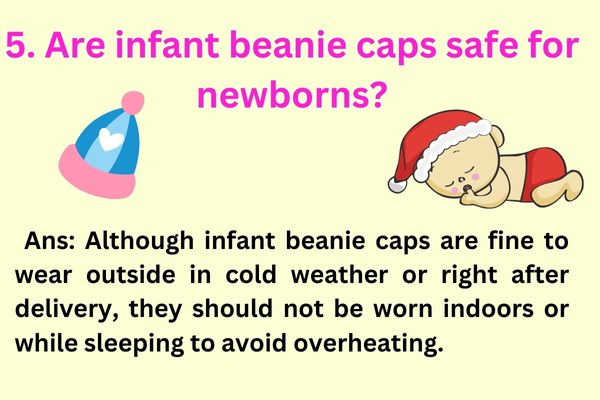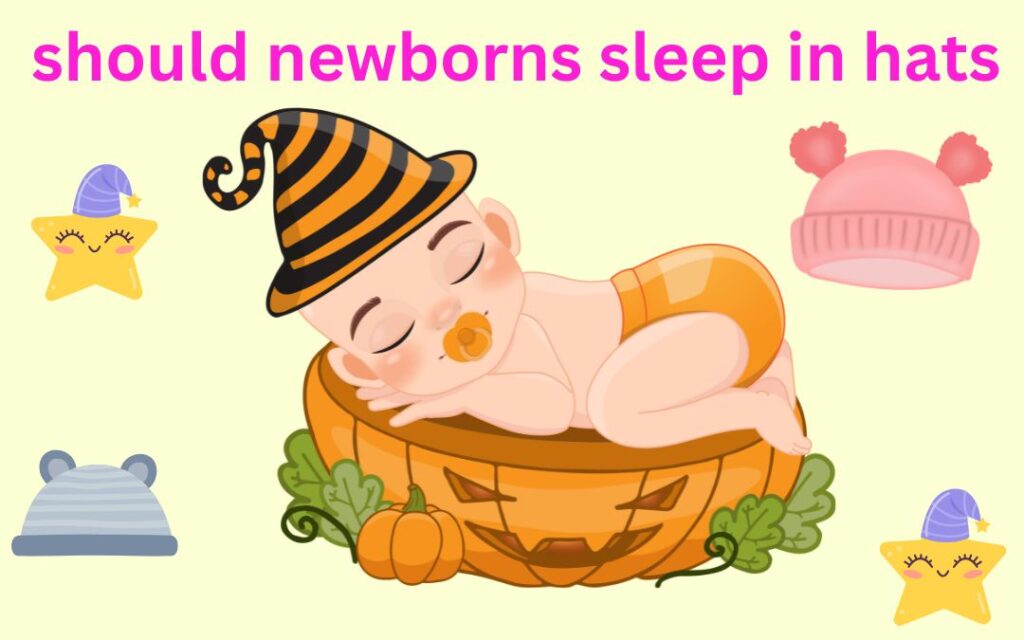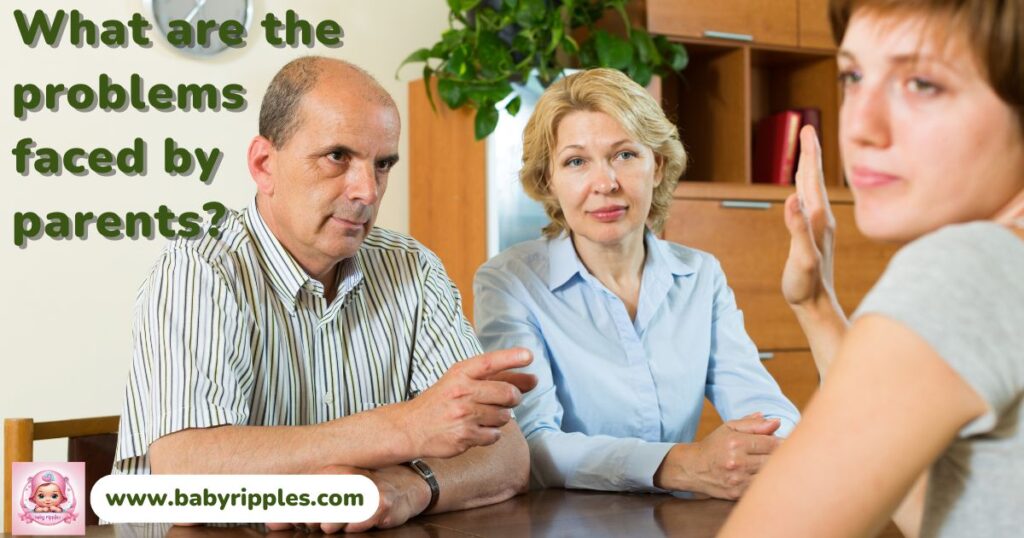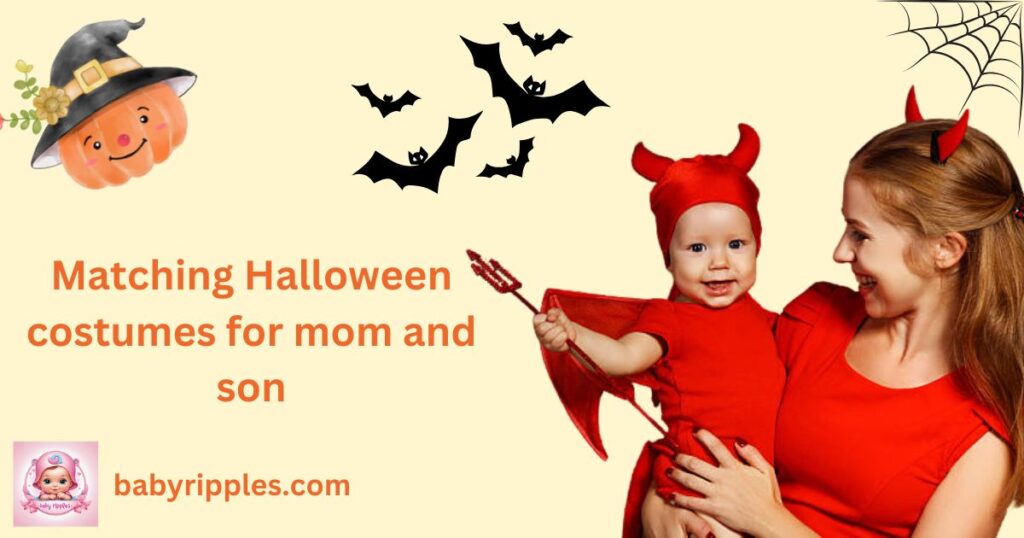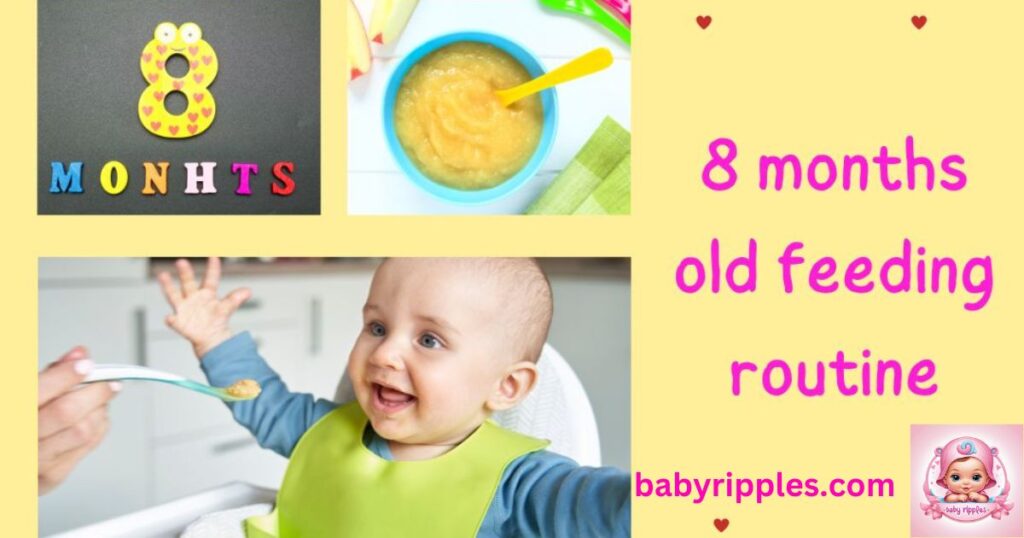New parents have many questions when they welcome a newborn into the world, particularly about how to keep their child safe and comfortable.These are common questions among parents: “should newborns sleep in hats?” and “what to dress baby in for sleep”?Hospitals use infant beanie caps to keep newborns warm as soon as they are born, as you have undoubtedly noticed. Making sure your infant isn’t overheating is crucial because this can be dangerous. Flushed skin, wet hair, or fussiness are signs baby is too hot while sleeping. Regularly monitoring these indicators is crucial, particularly if your infant is indoors wrapped up or wearing a cap.
- Why Do Newborns Wear Hats?
- Should Newborns Sleep in a Hat?
- When Can a Baby Wear a Hat?
- Should My Newborn Sleep in a Hat? Step-by-Step Safe Sleep Tips
- Choosing the Right Infant Beanie Caps for Outdoors
- Final Thoughts: Keep Safety a Priority
- Frequently Asked Questions about should newborns sleep in hats
- Question no # 1
- Question no # 2
- Question no # 3
- Question no # 4
- Question no # 5
- About the Author
Why Do Newborns Wear Hats?
Babies enter a colder world at birth after leaving the warm environment of the womb. They lose heat more quickly than adults because they lack the capacity to control their body temperature. In order to keep newborns warm during those crucial initial few hours of life, hospitals utilize infant beanie caps as soon as possible after birth.
The regulations regarding headwear, however, alter after your kid is released from the hospital. Let’s examine why it’s critical to understand when to utilize them and when not to.
Should Newborns Sleep in a Hat?
Babies shouldn’t sleep in hats. It may seem like an easy way to keep your infant warm, but there are a few reasons why it’s not advised:
Overheating Risk:
Babies’ heads control their body temperature. If you put a cap on them while they’re sleeping, they can get too hot. It is well recognized that overheating increases the risk of SIDS.
The hat may fall free and hide your baby’s face when they move while they sleep, which increases the danger of asphyxia.
Temperature Regulation:
It’s critical that babies sleep in settings that don’t interfere with their ability to control their body temperature. Hats and other layers added in excess can obstruct that.
Newborns should sleep on a hard, flat surface, such a cot or bassinet, without any additional things like cushions, blankets, or headgear, according to the American Academy of Pediatrics (AAP). This guarantees a secure resting environment and lowers the risk of SIDS.
When Can a Baby Wear a Hat?
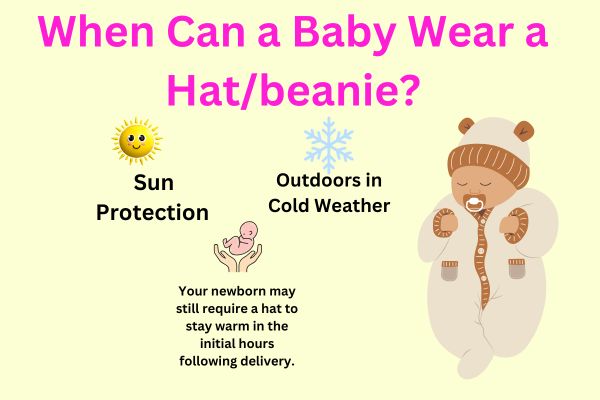
Hats are useful and important in other situations, but they shouldn’t be worn when baby is sleeping.
The Initial Hours Following Birth
Your newborn may still require a hat to stay warm in the initial hours following delivery. Hospitals utilize infant beanie caps to keep newborns warm because their heads lose a lot of body heat. Although this is particularly crucial in the immediate postpartum period, outside of the hospital, this procedure is not required for daily use unless it is extremely cold.
Outdoors in Cold Weather
A hat is a smart idea if you’re taking your infant outside in chilly weather because they lose heat more quickly than adults do. Make sure the hat fits tightly and is warm enough to protect their ears.
Do babies need to wear hats outside? Sure, but pay attention to the temperature. Put on an additional layer and a cap if the temperature drops below 75°F. To keep your infant warm in cooler weather, you might need to wear more layers, but again, take care not to overheat them.
Sun Protection
It is not advised to use sunscreen on infants less than six months. Instead, use lightweight caps that hide their faces and heads from the sun to protect them from damaging UV rays. Sun hats with broad brims and breathable materials are ideal for this use.
Should My Newborn Sleep in a Hat? Step-by-Step Safe Sleep Tips
To ensure your baby is warm and safe without the need for a hat during sleep, here’s a step-by-step guide:
1. Dress Your Baby in Light Layers
Start with a cotton sleeper or onesie, then modify the layers based on the ambient temperature. A wearable blanket or sleep sack is the best option for keeping your infant warm on chilly evenings without having to worry about loose blankets.
2. Check the temperature in the room
Babies should be kept in a room that is between 68°F and 72°F. Instead of putting extra garments on your infant, think about changing the temperature if the room is really cold.
3. Safely Swaddle
Swaddling is a terrific technique to keep babies warm without putting them at risk of asphyxia if they aren’t yet rolling over. When your baby begins to roll over, make sure they are always swaddled with their arms out.
4. Avoid Overheating
To figure out whether your infant is excessively hot, you can easily feel their hands, feet, and neck. Take a layer off of them or change the room’s temperature if they are sweaty or warm.
5. No Hats or Loose Items in the Crib
No matter how much you might want to give your kid a cute hat, it’s better to keep loose objects like blankets, pillows, and hats out of the crib. The safest sleeping environment is achieved with a firm mattress and fitted sheets.
Choosing the Right Infant Beanie Caps for Outdoors
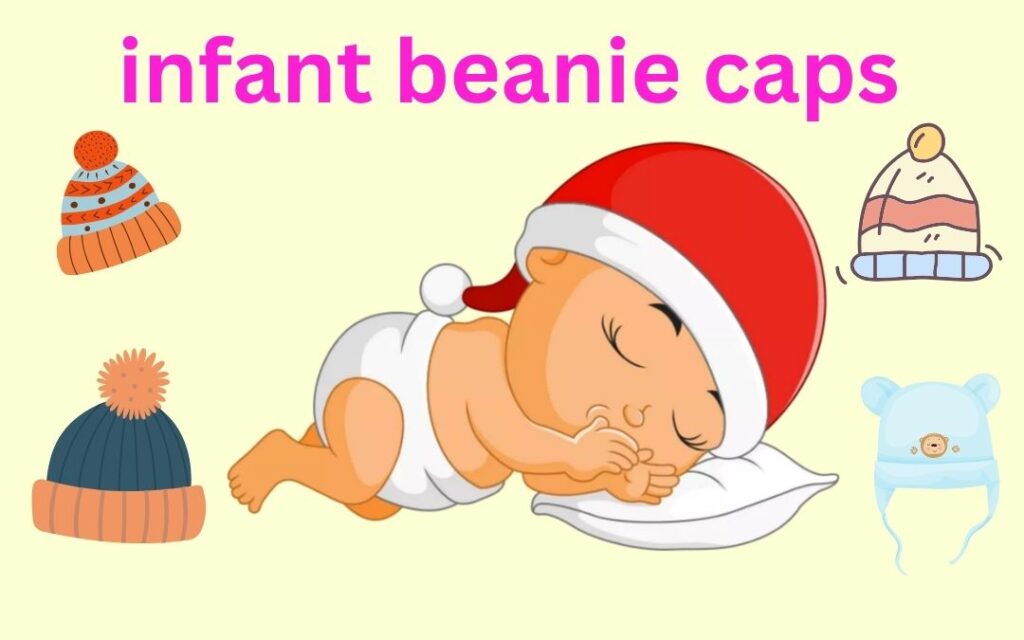
When you do need to purchase a hat for your baby, here are some tips to ensure you pick the right one:
Material Issues: In the majority of cases, choose breathable, natural materials like cotton. Hats made of wool or fleece work well in cooler climates.
Fit and Size: Verify that the hat fits well without being excessively tight. It should remain in place and protect their ears without slipping over their eyes.
Specific to the weather: Select a warm, thick cap that will act as insulation in chilly conditions. Choose a wide-brimmed, lightweight choice for protection against the sun.
You can keep your infant safe and comfortable by choosing the appropriate hat for the circumstance. A well-chosen hat will provide you with comfort whether you’re facing sunny or cold weather.
Final Thoughts: Keep Safety a Priority
You can now confidently respond to the question, “should newborns sleep in hats? ” after learning the facts. Keep in mind that while hats can be helpful in keeping your newborn warm after birth and when they are outside in cold weather, they should not be worn while they are sleeping.
Keep your baby’s room at the right temperature and concentrate on safe sleepwear, such as wearable blankets, if you’re still worried about how to keep them warm at night.You may prevent needless risks and keep your kid safe, warm, and comfortable by adhering to these suggestions and advice. With this newfound knowledge, you can confidently select the greatest infant beanie caps for your child!
Frequently Asked Questions about should newborns sleep in hats
Question no # 1
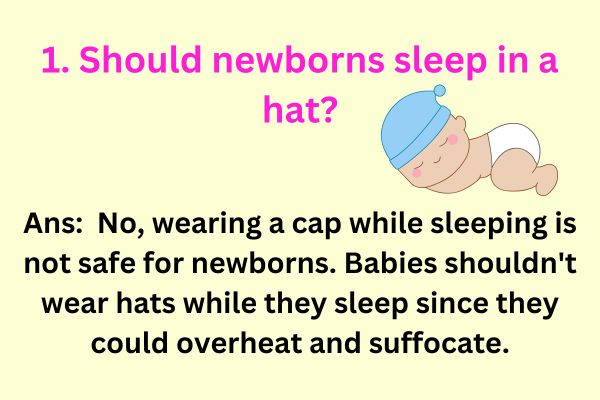
Question no # 2
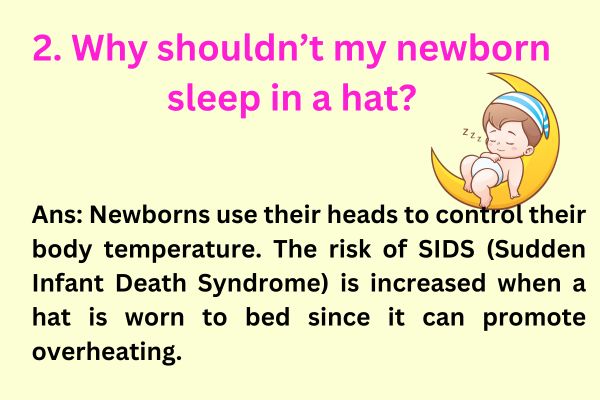
Question no # 3
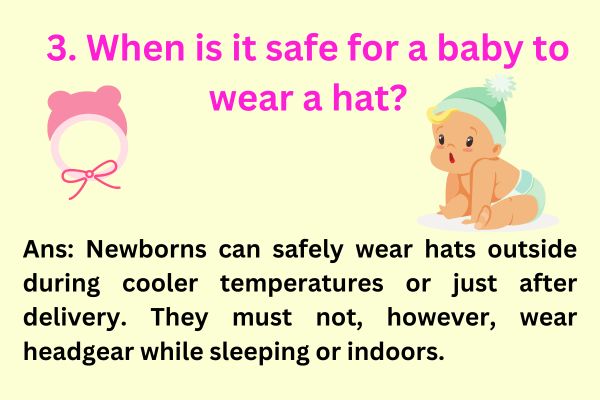
Question no # 4
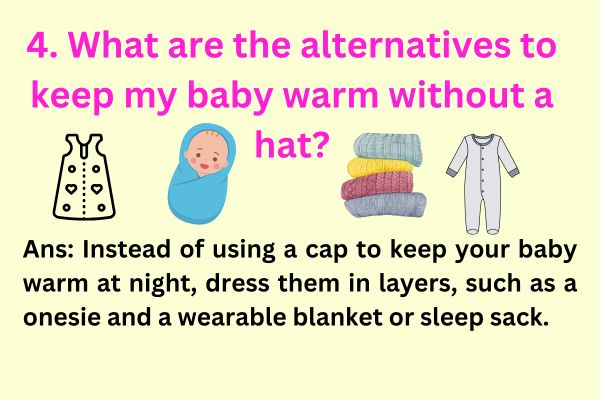
Question no # 5
